The last thing I’m trying to do here is give answers. I have none. But I do continue to have questions, neverending questions, ever spiraling deeper.
One thing I’m noticing is that the greater the pain, the deeper the grief; and the deeper the grief, the more memories. The pain of loss fades away but the pain of grief begets memories. I really do not want my grief to go away. I prefer to nurture it as it brings forth memories.
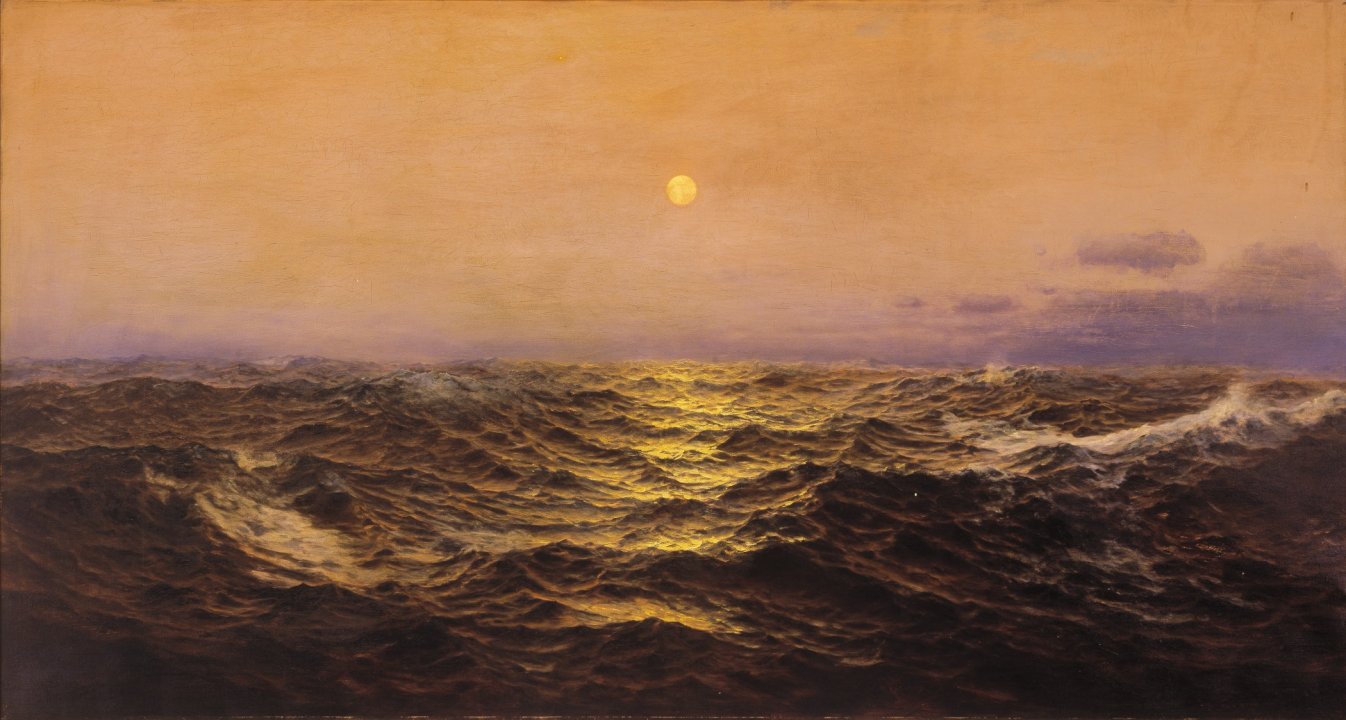 To go in the dark with a light is to know the light. To know the dark, go dark. Go without sight, and find that the dark, too, blooms and sings, and is traveled by dark feet and dark wings. (Wendell Berry) Too often we bring our floodlights of hope to a wake. In a time of mourning, why do we resist the sorrow. For me, it is that grief that brings into focus our memories. Our glaring floodlight of happy, happy, happy, and hope, hope, hope blinds us to our pain, the very thing we need that allows us to process our grief. Why do we feel such intense need to alleviate the pain of others when that pain is there to do its work. We must not short-circuit the grief process for ourselves or for others.
To go in the dark with a light is to know the light. To know the dark, go dark. Go without sight, and find that the dark, too, blooms and sings, and is traveled by dark feet and dark wings. (Wendell Berry) Too often we bring our floodlights of hope to a wake. In a time of mourning, why do we resist the sorrow. For me, it is that grief that brings into focus our memories. Our glaring floodlight of happy, happy, happy, and hope, hope, hope blinds us to our pain, the very thing we need that allows us to process our grief. Why do we feel such intense need to alleviate the pain of others when that pain is there to do its work. We must not short-circuit the grief process for ourselves or for others.
Even though my pain and my grief from my father’s death is not as overwhelming and intense (for some reason) as it is for others, I won’t allow guardrails of protection. It has free reign to do its work in my life, no matter how deep, or long, or overwhelming, or intense it gets. It is there to do a work that nothing else can do within me. No limiting, no binding, no blinding, no dulling, and no fencing it in. Just like free-range chickens, we know that when we take down the fences, the whole farm gets healthier. That is the only way anything can become healthy, whole, and its best self. So SORROW, “HAVE AT IT”! I SURRENDER! And again I say, Hineni: Here Am I! (Living with Open Hands 2.0)
In a dark time, the eye begins to see. (Roethke)
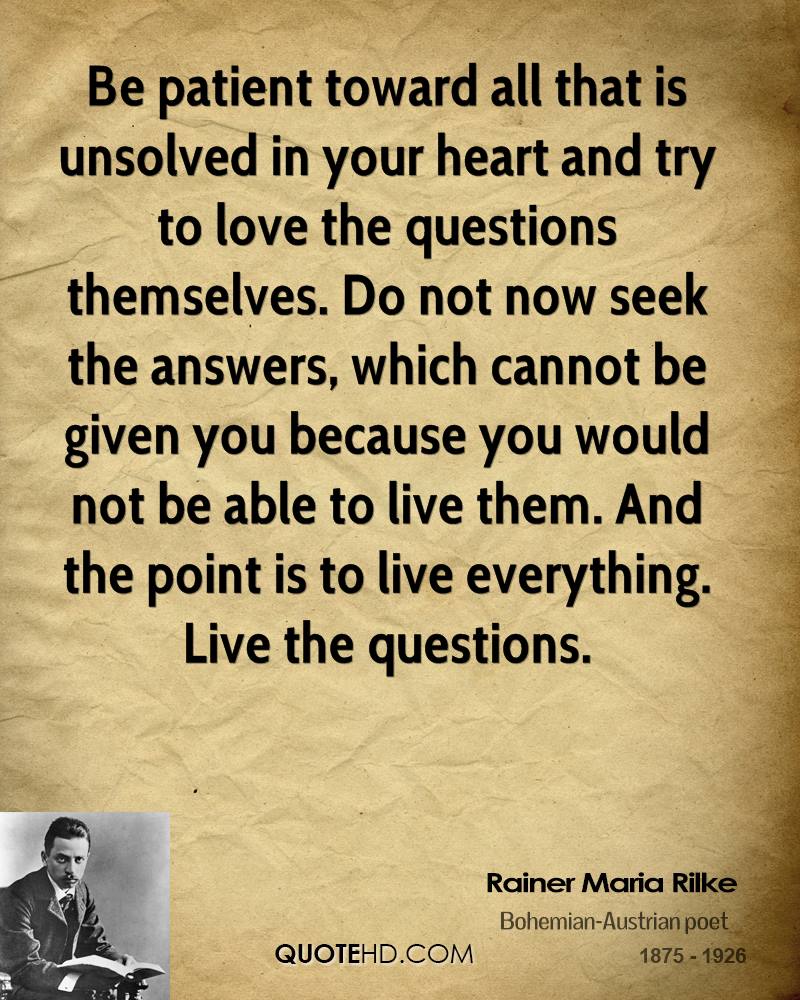 So I am teaching myself to rest in uncertainties, to revel in the secrets of darkness. (Lindsay Mead)
So I am teaching myself to rest in uncertainties, to revel in the secrets of darkness. (Lindsay Mead)
All of life is mystery but I tend to think that in light, the mystery is much more tightly held to the chest. Whereas in darkness, the mystery just may come out to play, only if it feels safe in our stillness, observing just long enough to let its presence be known but not long enough to be seen or to reveal itself. For me, inklings of truth are leaked at the edge of darkness only when I sit quietly giving sustained attention. Sort of like sitting quietly in the woods waiting for a glimpse of a wild animal that lives there.
“Be patient toward all that is unsolved in your heart and try to love the questions themselves like locked rooms and like books that are written in a foreign tongue. Do not now seek the answers. . . . Live the questions for now.” (Rainer Maria Rilke, Letters to a Young Poet)
After living a life of unquestioned certainty by following evangelical christianity, I find myself struggling more and less than ever with death and grief, especially that of my dad.
I come from a family of generations of devout christians. I don’t know of any relative that ever questioned that certainty, or, heaven forbid, turned away. My father, who died on September 17, 2024, was a strong and respected leader among those christians along with holding well known leadership positions (both informal and formal) in his church and community. A few months ago, he turned to me and, with tears in his eyes, said that he knows death is coming soon. Then he said that he didn’t know what he would do if he did not have his christian beliefs to hold tight to; literally clinging for dear life. His voice was strained with both fear and hope. He has been convincing himself that he must hang on to his beliefs of heaven along with coping with his dread of death and all that is unknown. But his convincement left him believing deeply that he did not have to fear death because he knew he was going to heaven to be with Jesus. The earnestness of those words deeply touched me and convinced me even more of the strength of his convictions. With this memory locked in my mind, I found myself reassuring others at the funeral and afterward, especially my mom, that all we can do is hang on tight to what we know. For her, she knew beyond a shadow of a doubt that she would soon be united with my dad, having been friends since they were 5 years old, married when they were 20, and she knew she was soon to follow him at her age, 87. 88 was the age of his death. 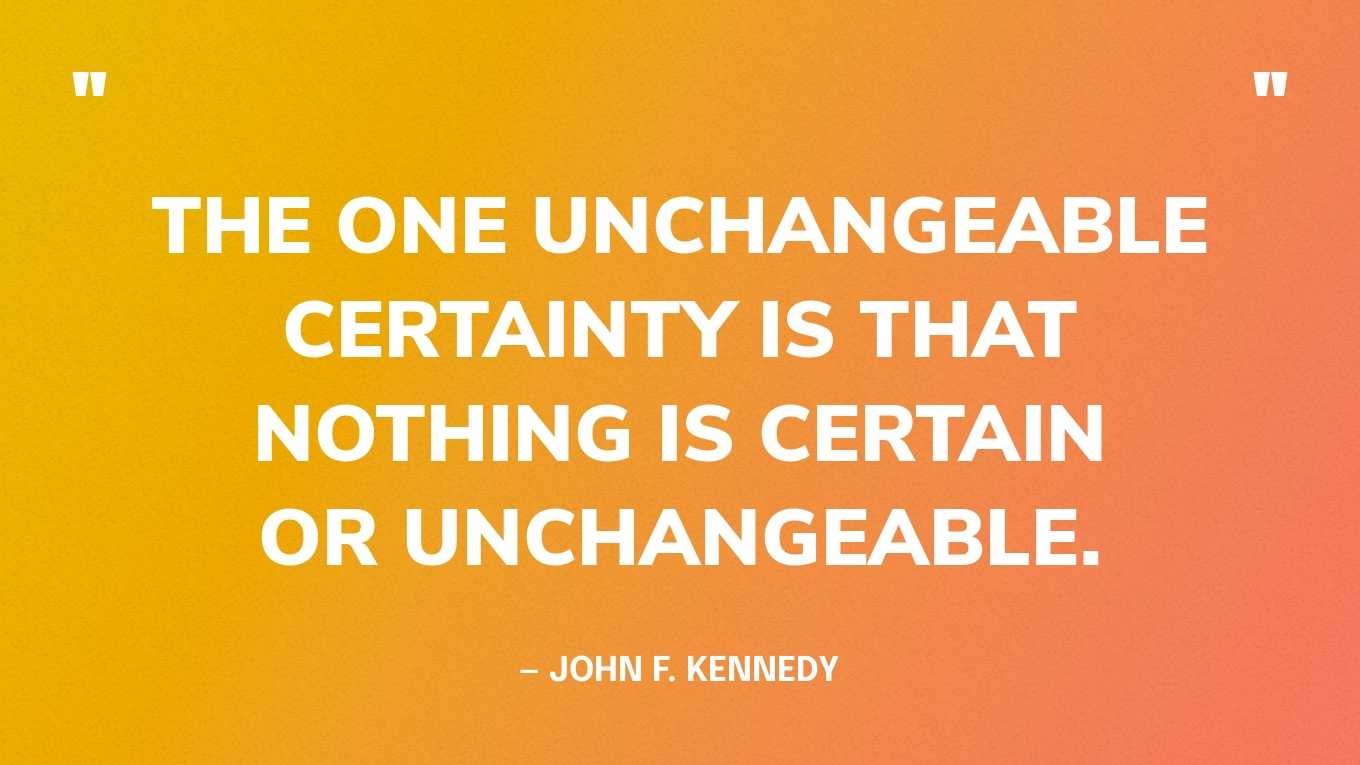
For me, it was quite an experience attending dad’s funeral and seeing all of these friends and families from the past 80 years showing up to give their respects. The hardest thing for me was to keep hearing these automatic phrases about heaven and seeing him again. In this culture it felt like we were a bunch of automatons that didn’t know what else to say besides what has been drummed into our heads over a lifetime. It had my head spinning but then I remembered the recent words of my friend in Grand Rapids that believes like me as the outlier in her family also. She said that usually she would seek out groups of people that were not too full of religious talk and just be with them. I felt very fortunate that my family’s best friends from childhood were there. When I heard the laughter at their table, I approached them and said I’m looking for the friendliest table here and they quickly made room for me. I can’t find words for how grateful I was for them.
Inside me was constant turmoil in the face of these certainties that so many clinged to. For the last 17 years, I had been questioning everything that I had been told all my life; a long and painful process that I documented in my blog Living with Open Hands (http://ronirvine.wordpress.com). When I started writing I had no idea where this quest for truth, honesty, and authenticity would lead me. I had no agenda and certainly did not plan that this process would lead me to let go of all dogma and religious beliefs. I just knew that I had to follow the truth no matter where it would lead.
So about 8 years ago, it struck me that if I was going to be honest, I would have to start by being honest with myself. The process of writing allows me to speak this truth to myself. Writing is the best way I know to express this evolution of soul, heart, and mind. (See Living with Open Hands 2.0 https://livingwithopenhands2.blogspot.com/) But I have continued to struggle with speaking this truth to others. I was afraid that if my parents were to find out that I no longer believed the stories that made up my magical childhood religion, it would break their hearts, especially my dad, since he believed so deeply and strongly. My mom loved him so deeply that she could not bear it either. What if we are not going to see each other again after death? Unthinkable!
I also think that if my parents found out about my unbelief, an even greater heartbreak would come from their belief that if they raise children in the ways of the lord, when they are old, they will not depart from it. I believe that this is their primary purpose in parenting. So I’m the black sheep, the wayward son, the misfit in so many ways.
The very essence of life contains within it the cycles of life and death. It doesn’t matter what religion or beliefs, theist or nontheist, these truths stand true. When I first began writing, I still considered myself to be a christian, I had a growing dissonance between what I thought I knew to be true and what I cannot know and what the religion I professed told me to believe. I realized that my greatest stumbling block, this juxtaposition, this quagmire is that it is UNTHINKABLE! I had to deny the dissonance until I couldn’t any more. This is where my 2.0 version https://livingwithopenhands2.blogspot.com/ picked up.
Constant change is the one certainty that destroys all possible certainty
My spiritual journey sure has confused my grieving process. Uncertainty is the one thing that we know for sure. Constant change is the one certainty that destroys all possible certainty. This is the essence of the creation within which we live. These truths, we cannot deny. Looking back on my philosophical evolution, I marvel at how great this dissonance grew to be.
How could I hold on to the certainty of my religious beliefs, of life after death, of heaven; knowing that there is nothing that is certain.
We know that life ends, usually unexpectedly.
We know that no one knows anything about life after death.
We know that no matter how much we want to know, it is not possible to know.
We are all left living in a universe that we know is in constant change, uncertainty, unknowing, and mystery.
None of us are given a special dispensation of knowledge of the universe, life, death, and the future of mankind or the future of any one of us individually.
Down deep we know that all of that all of this hidden knowledge cannot be contained in a book
And this god of the bible saw it fit to live for thousands of years without expressing himself to us. The only attributes he left us is silence and invisibility.
When I gave my mom hope by saying that all we can do is hang on to what we know, I did not explain the reality of knowing.
There is knowing what we think we know (the stories in our minds, that which we have been told).
There is knowing what we can know (reality, “what is”, that which is verifiable, what we can see and touch, and that which science gives us evidence of).
There is knowing that can lead to certainty as a human construct (dogma, religion and its unverifiable stories).
There is knowing that can lead to uncertainty (If we already know, we can no longer learn) as we live with open hands as an expression of an open mind, open heart, and open will.
This last knowing that can only lead to uncertainty is the type of knowing that is real, for me. Maybe it is better to call it unknowing. Trying to create certainty where there is none is futile, like grasping the wind. So what I am left with is that I do not know and cannot know about things that are life’s mysteries; like death and life after death.
Back down to earth, day by day
One thing that I’m understanding is that grief is different from loss. Loss is what brings the pain. Grief is what nurtures the memories. Grief goes deeper and lasts longer, while doing its work in us. I’m still trying to wrap my brain around that and the following:
"Grief requires us to know the time we're in. The great enemy of grief is hope. Hope is the four-letter word for people who are unwilling to know things for what they are.
"Our time requires us to be hope-free -- to burn through the false choice of being hopeful or hopeless. They are two sides of the same con job. Grief is required to proceed." (Stephen Jenkinson)
"The depth of your grief is the measure of your love." (Joanna Macy)
"The human longing for certainty in an uncertain world perhaps accounts for the idolatrous way in which some treat certain religious symbols.". (Jan M. Long)
“The very desire to be certain, to be secure, is the beginning of bondage. It’s only when the mind is not caught in the net of certainty, and is not seeking certainty, that it is in a state of discovery.” (Krishnamurti)
“I am asking myself what is fear, not what I am afraid of.
I lead a certain kind of life; I think in a certain pattern; I have
certain beliefs and dogmas and I don’t want those patterns of
existence to be disturbed because I have my roots in them. I don’t
want them to be disturbed because the disturbance produces a state
of unknowing and I dislike that. If I am torn away from everything
I know and believe, I want to be reasonably certain of the state of
things to which I am going. So the brain cells have created a
pattern and those brain cells refuse to create another pattern which
may be uncertain. The movement from certainty to uncertainty is
what I call fear.” (Jiddu Krishnamurti, Freedom from the Known)
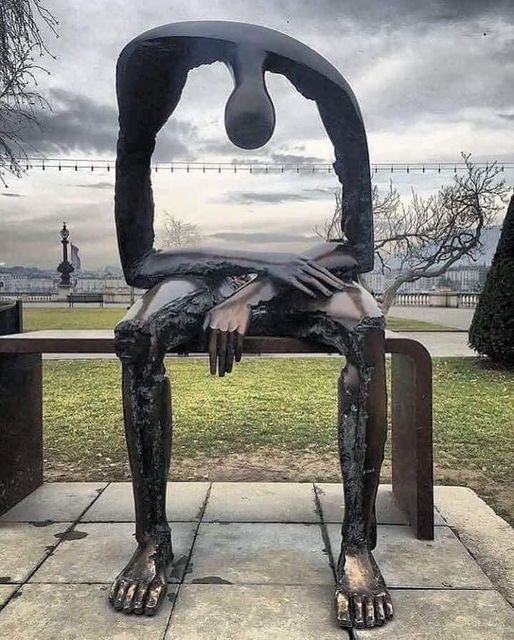 Mourning Soul
Mourning Soul
"This is what Grief feels like..
Don’t judge it
Don’t rush it
Don’t dismiss it
Don’t suppress it
There is no Rulebook for Grief.
It comes in waves. And I pray for the ones
who feel as though they’re drowning."
This sculpture is in Switzerland ~ I think it expresses grief perfectly. 
By Albert Gyorgy and it is entitled
"Mélancolie
Philosophical Suicide
https://livingwithopenhands2.blogspot.com/2020/11/philosophical-suicide.html
https://livingwithopenhands2.blogspot.com/2019/08/comfort-security-certainty.html
Heaven and Hell and other such stories
https://livingwithopenhands2.blogspot.com/2021/03/heaven-and-hell-and-other-such-stories.html
Living the Questions
https://ronirvine.wordpress.com/2009/12/28/living-the-questions/
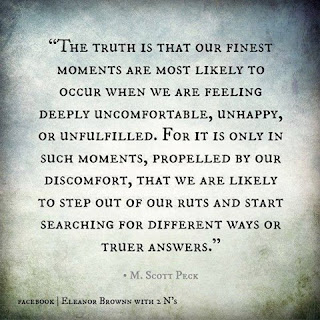 “The lust for comfort
“The lust for comfort
murders the passion of the soul,
and then walks grinning in the funeral.”
(Kahlil Gibran)
“People wish to be settled.
Only as far as they are unsettled
is there any hope for them.”
(Emerson)
"There is no real certainty
until you burn;
if you wish for this,
sit down in the fire.”
(Rumi)
Since…
Constant change is the one certainty
that destroys all possible certainty
Then what do we do with this human
Lust for security
Addiction to certainty
Our all consuming desire
For comfortableness???
How do we reconcile
Being human with
The realities of this universe?
This we have been doing for thousands of years.
Civilization was created
to comfort and calm the masses.
Society was formed
to give conformity and control
To those unquenchable masses
On the edge of chaos and anarchy
Throughout the ages.
That… is the point of civilization:
Mass comfort, control, conformity,
certainty, and security.
Civilization’s answer is religion;
The opiate of the masses.
No longer is there a need to fear death.
Through religion we can be true believers
With delusions of comfort, security, and certainty.
For life and for death and for anything imaginable in between: NO MORE FEAR.
SEE: (Sam Keen on Ernest Becker in death)
https://youtu.be/-7FaWj9i9XI?si=nL8O3MEMUyVySVDp
Consciousness of our Demise
The human dilemma is that we can honestly look at the predicament we are in. Or we can choose a world and life view that fits what we want to believe, truth be damned.
“This is the terror: to have emerged from nothing, to have a name, consciousness of self, deep inner feelings, an excruciating inner yearning for life and self-expression - and with all this yet to die”
(Ernest Becker, The Denial of Death).
When we strip life of its pretenses, certainties, assumptions, and fairy tales, all the way down to its essentials what is left? Sometimes it feels like a cosmic game of chess. Othertimes, when I'm most honest, it feels like an existential universal joke.
Then I must remember and appreciate all of life which always includes death.










